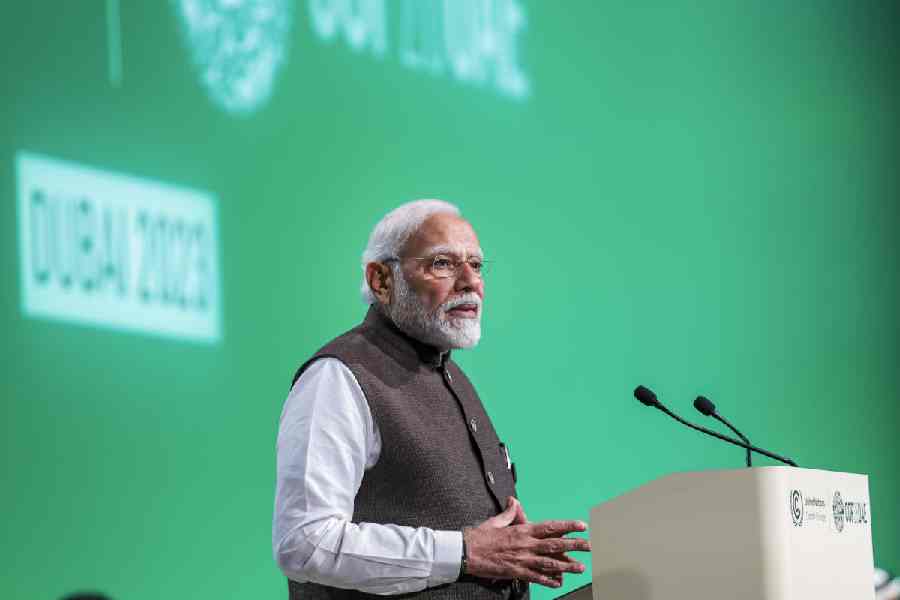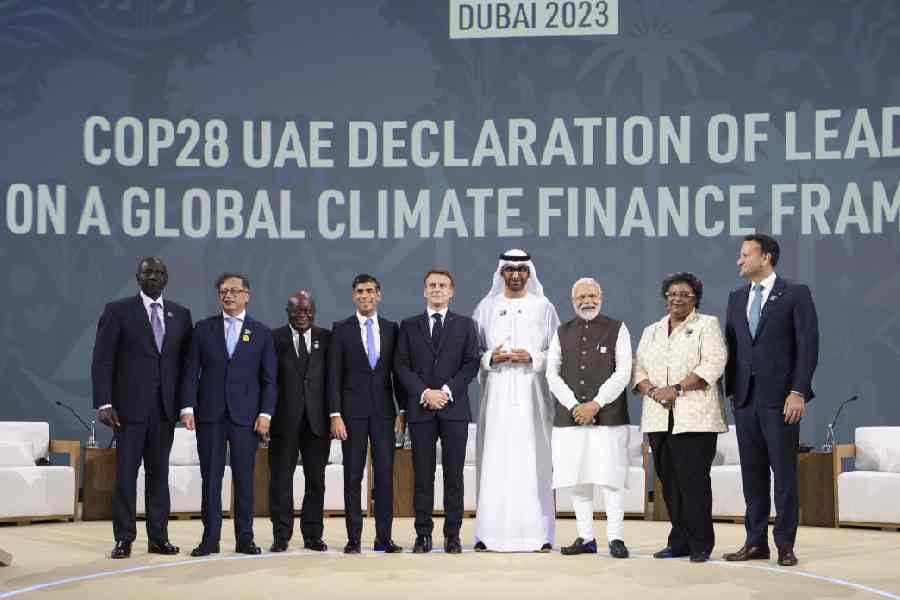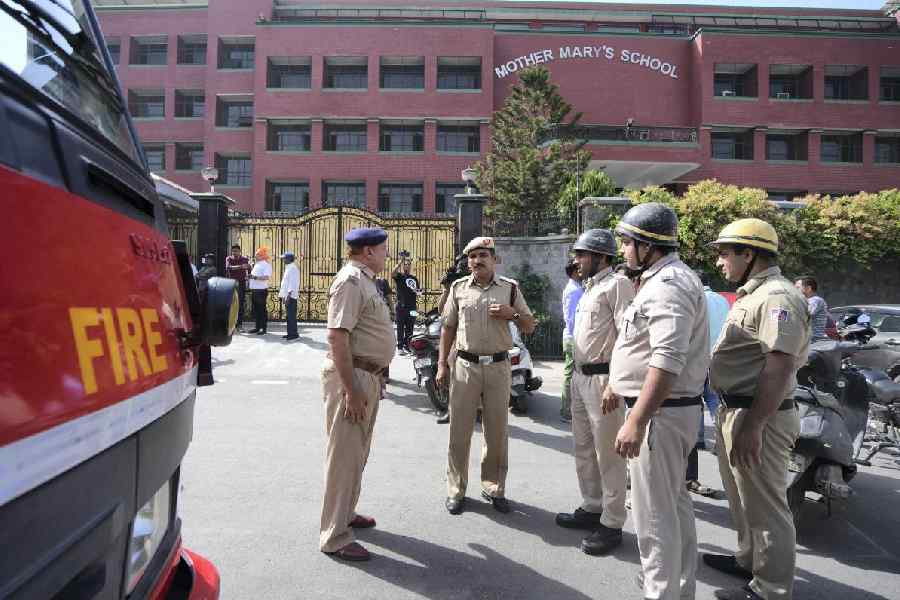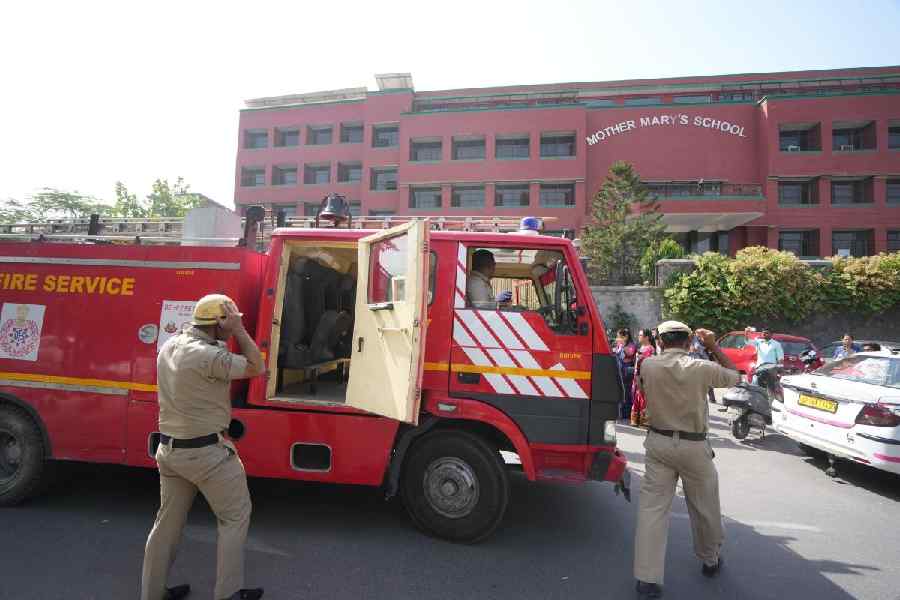Prime Minister Narendra Modi on Friday told a UN climate summit that India had set an example by striking a “perfect balance” between ecology and economy, prompting Congress leader and former Union environment minister Jairam Ramesh to challenge that assertion.
Modi, speaking at the 28th Conference of Parties (COP) of the UN Framework Convention on Climate Change in Dubai, also said that India was among the few economies in the world that are on track to meet their climate goals and proposed that India would host COP33 in 2028.
“Today, India has set before the world an example of a perfect balance of ecology and economy,” Modi said in his address at the inauguration of the “high-level segment” of COP28. “Despite India having 17 per cent of the world’s population, our share of (Earth-warming greenhouse gas) emissions is less than 4 per cent.”
The Prime Minister urged the rich countries to enhance their financial and technological support to help developing countries meet their climate actions.
Modi also issued a call for a “green credits initiative” that he said would seek to create “sinks” for emissions with public participation. Forests serve as natural sinks for emissions. The environment ministry had earlier this year introduced a national green credits programme that would incentivise activities such as afforestation and water harvesting.
The Prime Minister’s assertion about India exemplifying a balance between ecology and economy, however, drew sharp criticism from Ramesh who called it “yet another of his trademark falsehoods”.
Ramesh, in a written statement released shortly after Modi’s talk in Dubai, accused the Modi government of diluting laws and rules on forest conservation, biodiversity and environmental impact assessment and weakening an apex tribunal for environmental issues.
“The environmental impact assessment norms have been continuously weakened since 2020,” said Ramesh, who was India's environment minister from May 2009 through July 2011 and had led Indian delegations at earlier climate summits.
“Timelines for hydro and mining project clearances have been arbitrarily extended, major project types have been removed from central government clearance, public hearings and participation have been skipped. In eco-sensitive areas like the Himalayan region, the Modi government has illegally bypassed environmental impact assessment by splitting (large) projects into small segments.”
The tunnel collapse in Uttarkashi that had trapped 41 workers for 16 days was “only a symptom of the larger malaise”, Ramesh said in the statement, which outlined concerns also articulated in the past by sections of environmental groups and scientists.
Ramesh said a 2023 amendment to the Forest Conservation Act 1980 removed protection for 25 per cent of India’s forest cover and would pave the way for the Modi government to exploit forests and hand them to a select few chosen corporates.
He said a 2022 notification had weakened the Forest Rights Act 2006, a legislation meant to protect the rights of traditional forest dwellers. “Forests can now be cleared without consulting those who live there, and consent from (representatives of local communities) is no longer needed to use forest land,” he said.
The National Biodiversity Act, Ramesh said, has been “massively diluted” to allow private companies easier access to forests without benefit-sharing with local communities and to do away with criminal offence provisions.
Ramesh also accused the Modi government of “consistently weakening” the National Green Tribunal since 2014, with vacancies left open for years, reaching 70 per cent in 2018, leading to the shutdown of the Chennai NGT bench. Madras High Court, Ramesh said, had to step in and instruct the Union government to fill vacancies.
“Bureaucrats rather than scientific experts are being appointed to key posts,” Ramesh said.
“How can anyone take what the Prime Minister says globally on the environment seriously in light of his disastrous track record in India?”











